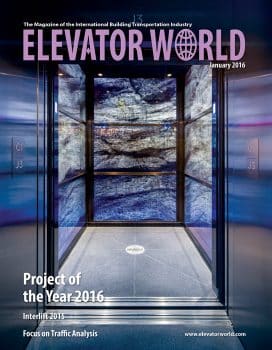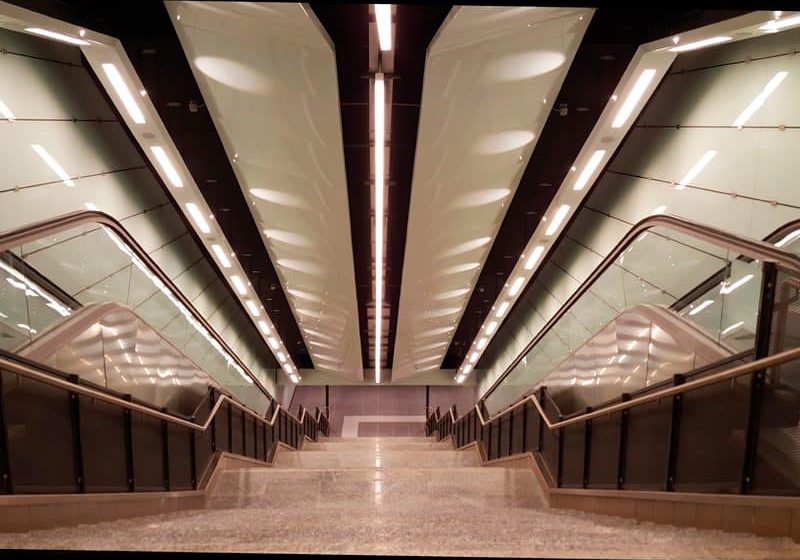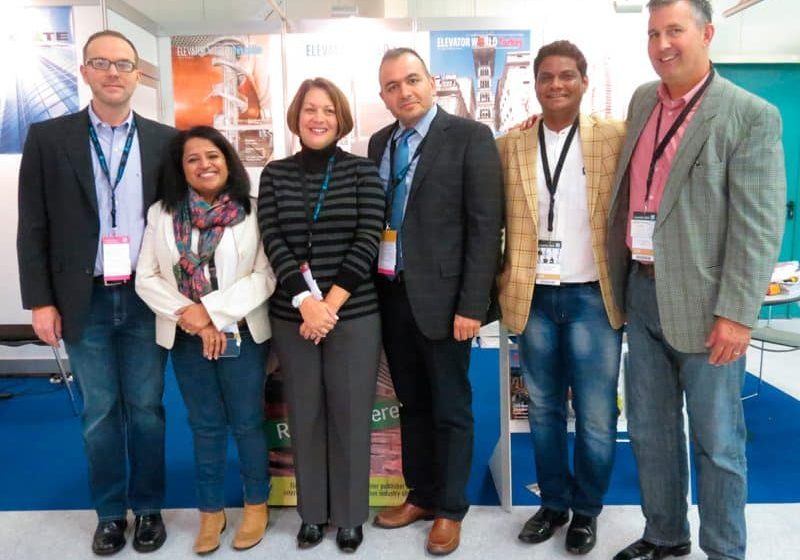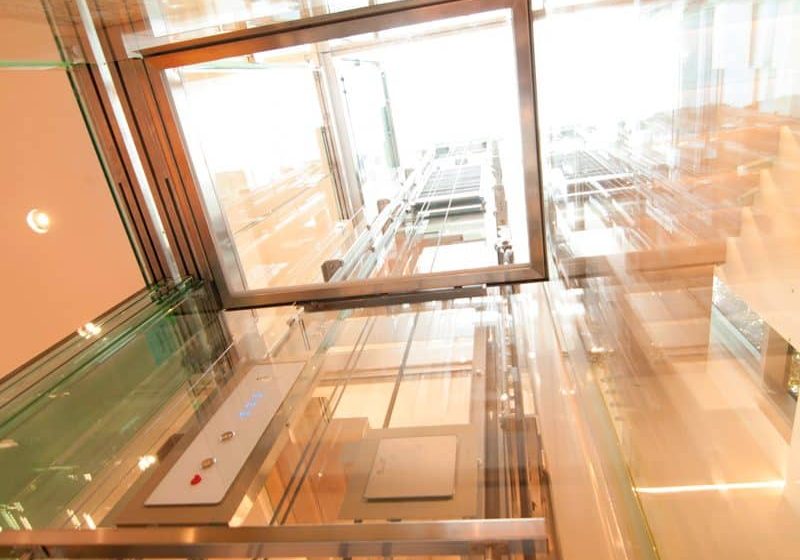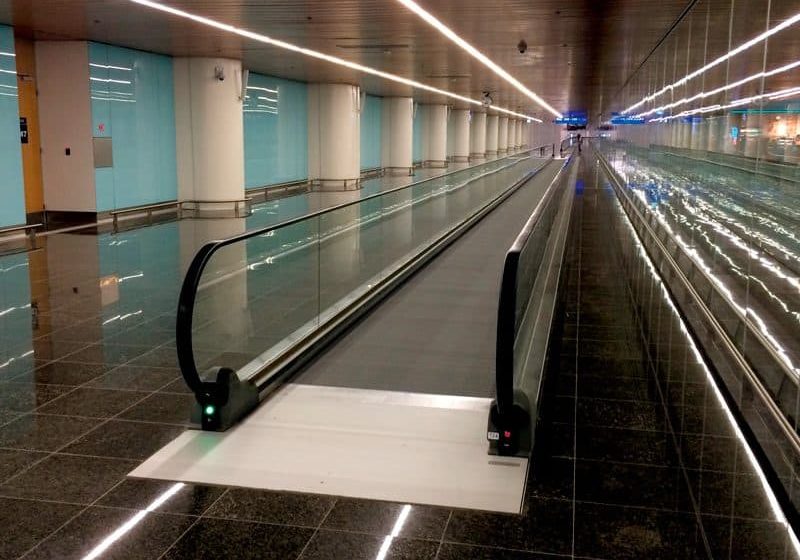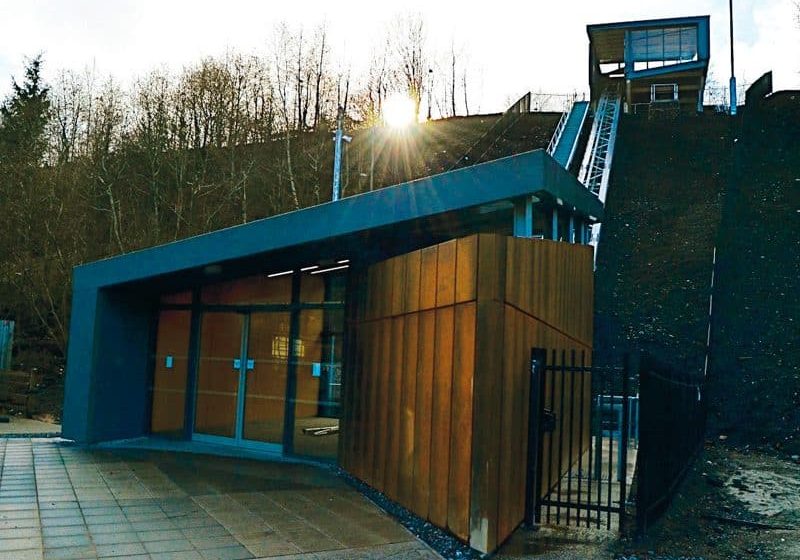Lincoln Center Theater’s Mitzi E. Newhouse Theater
Jan 1, 2016

Team reunites after nearly 20 years to help revitalize storied entertainment venue.
New York, New York
submitted by Doug Boydston, Handi-Lift, Inc.
An unusual project for us this year was replacing a custom lift we had installed in 1997 with a new and improved design in 2015. Almost 20 years after the original job, we were honored to again work with the same general contractor and architectural metal and glass fabricator.
The Mitzi E. Newhouse Theater opened to the public on November 10, 1967. Located in the lower level of the Vivian Beaumont Theater building in New York City (NYC), this space was originally called the Forum during the residency of the now-defunct Repertory Theater of Lincoln Center. In 1973, the theater was renamed for Mrs. Newhouse, a prominent NYC philanthropist, when Joseph Papp’s New York Shakespeare Festival took over the management of the Vivian Beaumont Theater building. The festival left Lincoln Center in 1978, and in the seven years that followed, the Newhouse was mostly rented to outside producers or not used.
In 1985, the theater’s current management—Lincoln Center Theater—was established. Former NYC Mayor John V. Lindsay assembled a new board of directors and signed Gregory Mosher as artistic director and Bernard Gersten as executive producer. In 1991, Linda LeRoy Janklow and André Bishop succeeded Lindsay and Mosher as chairman and artistic director, respectively. Lincoln Center Theater has not only outlasted all prior managements combined, but it has become America’s largest not-for-profit theater, producing a year-round program of plays and musicals at the Beaumont, the Newhouse and at various other theaters around NYC.
Technical Specifications
The original lift-drive system in the box-office area of the Newhouse was a heavy-duty vertical-platform lift by National Wheel-O-Vator with a custom bronze and glass enclosure on the platform by Paxton Metalcraft. The lift pulled a rolling skirt made by Enterprise Elevator Products up out of the shallow pit to protect the underside of the lift when it was in the upper landing position. Aesthetically, the advantage was when the lift was in the lower landing no full-height lower landing door was needed and the wrought-iron railing on the stair leading up to the box office was not obstructed. The upper gate was integrated into the railing to complete the look, as one can see in the pictures of the original lift.
When the old lift failed and we were charged with replacing it, we wanted to improve on the serviceability of the lift, while maintaining the aesthetic goals of the original project. We were able to save and restore the upper gate, but, instead of the complex rolling skirt and platform gate concept, we substituted a full-height bronze-and-glass door with a glass transom overhead.
We supported that transom with a bronze latch post and patch hardware on the side enclosure wall. We added a new wall of bronze and glass between the lift and the stair. This completed the full height enclosure to 42 in. above the upper landing, which is required by code. This simplified the design considerably, eliminating a platform gate on a moving platform and a complex skirt.
The drive system we used this time was the Garaventa roller-chain hydraulic drive. The mast and platform were custom painted to match the railing opposite, and the mast was buried in the travertine marble wall just as the previous lift was buried. Of course, the size of the opening needed was not the same.
The general contractor had to remove some of the existing marble, cut pieces to fit around the new mast and reinstall them to match the original walls. They also poured the original pit, which was 36-in. deep (to accommodate the roll-up skirt), up to 12-in. deep to create a new platform on which to place the new lift. The result was an economical, more serviceable and still beautiful lift befitting the grandeur of Lincoln Center Theater.
Special Features
- Steel installed behind the marble to support the latch post and mast
- Dorma BTS 75 floor closers and Rixon intermediate pivots
- Garaventa Power Lock 2000 for the interlocks; this style of lock does not require communicating hardware as do electric strikes, and the locks are certified to new ASME A18.1 standards
Credits
- Owner: Lincoln Center Theater, NYC
- General contractor: Yorke Construction Corp., NYC
- Drive-system manufacturer: Garaventa, Surrey, Canada
- Bronze-and-glass enclosure fabrication: Paxton Metalcraft, Peekskill, New York
- Design and installation: Handi-Lift, Carlstadt, New Jersey
Get more of Elevator World. Sign up for our free e-newsletter.

